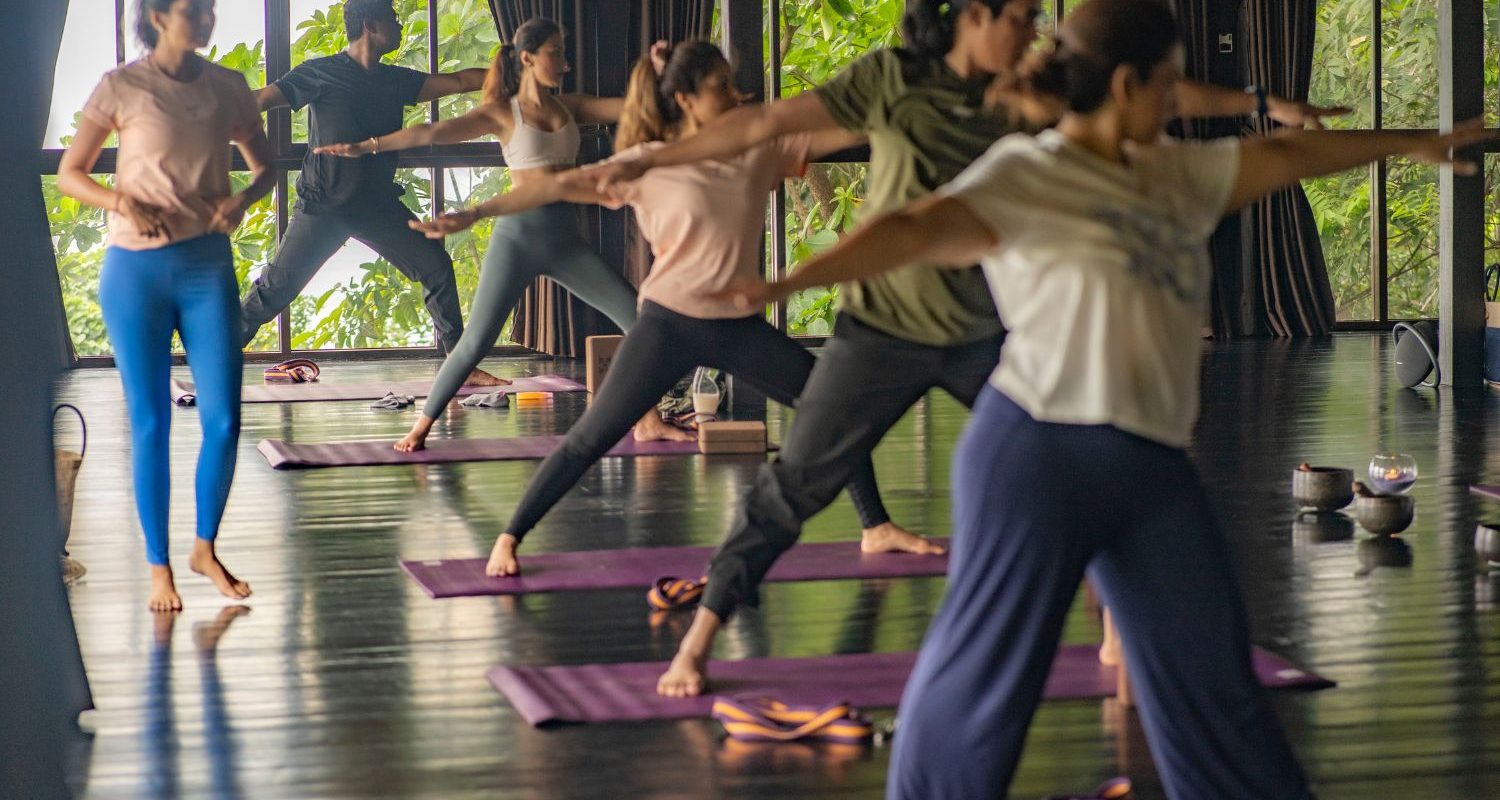5 Essential Questions to Ask Before Choosing a Yoga Teacher Training (YTT)
Recent Blog
Ready to Join Yoga Course

5 Essential Questions to Ask Before Choosing a Yoga Teacher Training (YTT)
In a world overflowing with yoga teacher training options, it’s easy to feel drawn to the picture-perfect scenes of handstands by waterfalls or sun salutations on Bali beaches. But choosing the right Yoga Teacher Training (YTT) isn’t about following the trend—it’s about aligning with a journey that’s deeply transformative, rooted in tradition, and relevant to the modern world.
With yoga’s popularity booming globally, not all YTTs are created equal. Some are beautifully packaged but lack depth. Others offer ancient wisdom without addressing modern-day challenges.
If you are an aspiring yoga teacher, these are the 5 essential questions you should ask before choosing their training.
1. Is the foundation of the training rooted in authentic yogic tradition?
At the heart of yoga lies a spiritual tradition thousands of years old. Many of the most respected yoga lineages originate from Rishikesh, India—considered the “Yoga Capital of the World.”
Choosing a training that honors these roots ensures a deep and comprehensive understanding of yoga beyond just physical movement. Programs that include or are led by teachers trained in traditional Indian schools often provide a more holistic and integrated experience.
2. Does the curriculum integrate modern healing modalities?
While classical teachings form the core of yoga, today’s students bring modern challenges—trauma, burnout, anxiety, and disconnection. A forward-thinking YTT will include trauma-informed teaching, sound healing, breathwork, meditation, and somatic practices.
The ability to weave ancient philosophy with modern healing science is what sets a great teacher apart. This balance is increasingly found in yoga schools that recognize both the sacred tradition and the needs of today’s world.
3. Is the location supportive of deep inner work?
Many are drawn to tropical destinations like Bali for yoga training—but it’s worth considering the energetic and cultural environment as well. In recent years, Thailand, particularly its northern regions like Chiang Rai and Pai, has become a sought-after destination for those seeking authentic, less commercialized YTT experiences.
Northern Thailand offers sacred landscapes, strong healing communities, and a slower pace that supports introspection. The setting plays a powerful role in shaping the depth and authenticity of the training experience.
4. Does the training prepare teachers for the realities of modern teaching?
A solid YTT will go beyond asanas and anatomy. It will speak to the real-world challenges that yoga teachers face today—building a conscious business, navigating social media mindfully, holding inclusive space, and avoiding burnout.
Look for trainings that offer workshops on the business of yoga, community leadership, ethical practices, and modern communication. This ensures graduates leave not only certified but also confident, resilient, and capable.
5. Will the experience foster both personal and spiritual growth?
At its core, a Yoga Teacher Training is a journey inward. The best programs don’t just certify yoga teachers—they support spiritual awakening, emotional healing, and authentic personal growth.
Look for schools that hold space for introspection, silence, vulnerability, and transformation. These programs are not about producing identical teachers but about helping each person rise into their truest expression—on and off the mat.
Final Thoughts: Choose More Than a Certification
Yoga is not a trend. It’s a timeless path of awakening, service, and evolution. The right training won’t just teach how to instruct poses—it will teach how to live consciously, lead compassionately, and teach authentically.
When choosing a YTT, it’s not about going where everyone else is going. It’s about finding a space that honors ancient roots, embraces modern healing, and prepares teachers for the real world.

